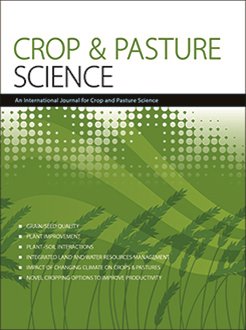Context There is no consensus between farmers and researchers about timing for ryegrass desiccation before corn sowing, considering interactions between ryegrass straw, nitrogen immobilization, and allelochemical release impacting corn growth.
Aims This study aims to assess the effects of different desiccation timings of annual ryegrass (Lolium multiflorum Lam.) and nitrogen management on corn. We sought to elucidate whether corn growth inhibition is attributable to allelochemical release or nitrogen immobilization.
Methods A two-year field factorial experiment was conducted, with Factor A comprising fallow and three ryegrass desiccation timings before corn sowing, and Factor B involving two nitrogen fertilization methods to evaluate N immobilization. Laboratory experiments assessed allelopathic properties using a 3 (desiccation periods) × 5 (ryegrass extract concentrations) factorial design. Assessments included corn (Zea mays) germination, seedling radicle and coleoptile length, and germination speed.
Results Ryegrass desiccation timing of less than 20 days before corn sowing reduced corn stature at the beginning of development and grain yield, due to nitrogen immobilization and allelopathic influences possibly exercised by caffeic acid and epicatechin present in roots and shoots, released as residues decomposed. Non-desiccated ryegrass aqueous extracts reduced germination speed and germinability. Root/shoot extracts reduced seedling elongation. Desiccated aqueous extracts at 15 and 30 days before corn sowing didn’t present inhibitory effects.
Conclusion Nitrogen enhances corn growth regardless of ryegrass influence, under these experimental conditions. Ryegrass desiccation timing affects corn yield; and delaying corn sowing post-desiccation mitigates losses. Ryegrass extracts inhibit corn germination and viability, regardless of concentration, possibly due to phytotoxic compounds.






